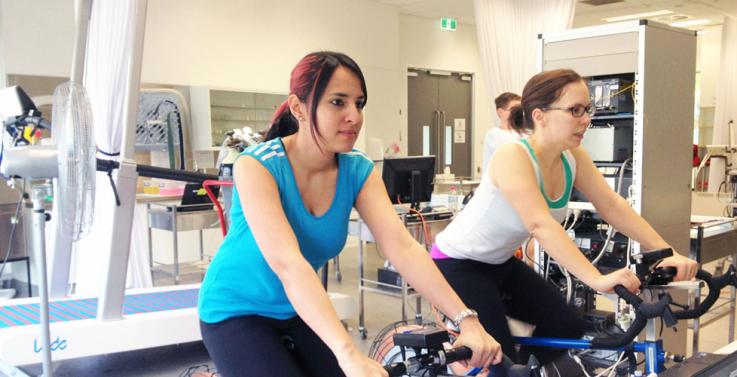
Researchers are investigating whether your weight at birth holds the key to how you respond to exercise as an adult.
Dr Gunveen Kaur from the Institute for Sport, Exercise & Active Living (ISEAL) said exercise ‘early in life’ for those born with low birth weight at full term can have major benefits for future health.
“About 5 per cent of babies born in Australia are born with low birth weight due to poor growth during pregnancy and are shown to have a higher risk of developing diabetes in adulthood,” Dr Kaur said.
“Studies on rats that were born with low birth weight - and so carried a greater risk of developing diabetes and related diseases - showed that those exercised from a young age reversed this predisposition in adulthood, effectively reprogramming their bodies through exercise."
However, Dr Kaur said rats who exercised in adulthood did not get a similar reprogramming effect from exercise.
"Now we are asking the next question in this research: Do human adults, who are born with low birth weight, respond to exercise effectively to reduce their risk of diabetes?”
To do this, researchers are seeking participants for a series of exercise tests in Victoria University’s state-of-the-art laboratories to see how their muscle and pancreas (insulin producing organ) respond.
Researchers are keen to have people from normal (2.5-3.4 kgs) as well as low birth weight (1.5-2.5 kgs) range involved. However to avoid confounding factors, those with family history of diabetes or born prematurely are not suitable for this particular study.
“This is exciting research because the results will help us unlock secrets about exercise programs for those with low birth weight. This may lead to different exercise guidelines for the low birth weight population if we find they do not respond as well to exercise training as normal birth weight adults," Dr Kaur said.
“As they say, prevention is better than cure: If we can prevent diabetes in this population rather than treat it later it will be a great achievement. It will not only benefit the society from a health point of view but also reduce the economic burden of treating the disease.”
Those participating in this study will be reimbursed $200 for their time and also learn about their aerobic fitness, blood glucose levels, body fat mass and bone density.
“Getting involved in this study will really help out with this important research, but this type of experience can also act as a motivation for increasing your own general fitness,” Dr Kaur said.
Dr Kaur is working with leading researcher in this field Professor Glenn McConell.
